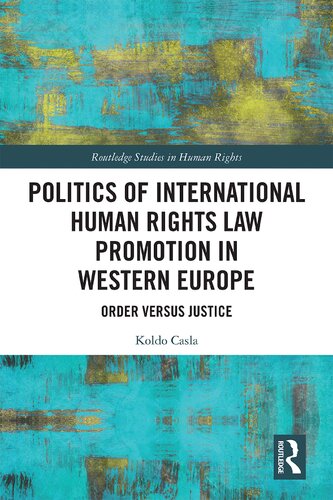

Most ebook files are in PDF format, so you can easily read them using various software such as Foxit Reader or directly on the Google Chrome browser.
Some ebook files are released by publishers in other formats such as .awz, .mobi, .epub, .fb2, etc. You may need to install specific software to read these formats on mobile/PC, such as Calibre.
Please read the tutorial at this link. https://ebooknice.com/page/post?id=faq
We offer FREE conversion to the popular formats you request; however, this may take some time. Therefore, right after payment, please email us, and we will try to provide the service as quickly as possible.
For some exceptional file formats or broken links (if any), please refrain from opening any disputes. Instead, email us first, and we will try to assist within a maximum of 6 hours.
EbookNice Team

Status:
Available0.0
0 reviewsThis book offers a critical reinterpretation of Western European States’ programmatic support for International Human Rights Law (IHRL) since the 1970s. It examines the systemic or structural constraints inherent to the international legal system and argues that order trumps justice in Western Europe’s promotion of international human rights norms.
The book shows that IHRL evolved as a result of a tension between two forces: A European understanding of international society, based on order, the centrality of the State and a minimalist conception of human rights; and a civil society and UN-promoted, mostly Western, particularly European but broader conception of human rights, based on justice. As such, human rights norms emerge and develop when (some) states’ idea of order meets with advocates’ idea of justice.
We are living a historical juncture of shifting tectonic plates with rising nationalism in the Global North, ever growing power in the Global South and a declining presence of Europe in global affairs. The conditions under which IHRL emerged have fundamentally changed and unpacking the factors beneath the international recognition of human rights has never been more pressing.
This book will be of key interest to scholars, students and practitioners in human rights law, public international law, international relations, critical legal theory and in European politics.